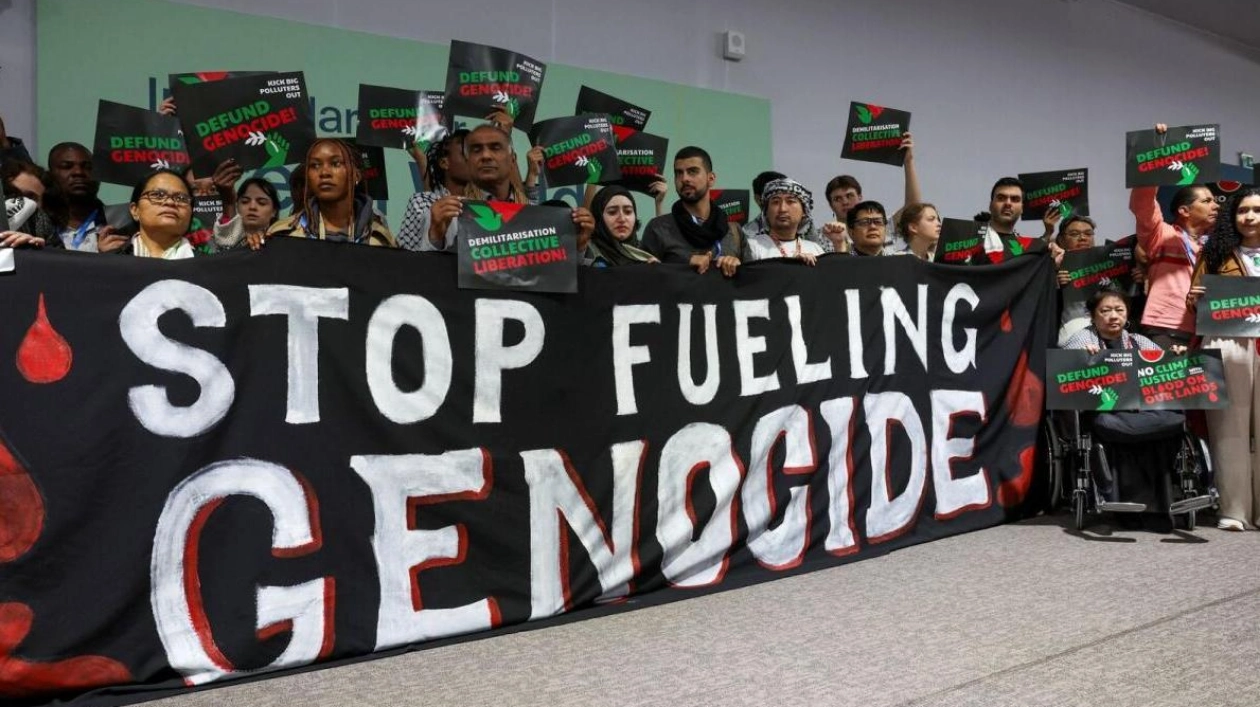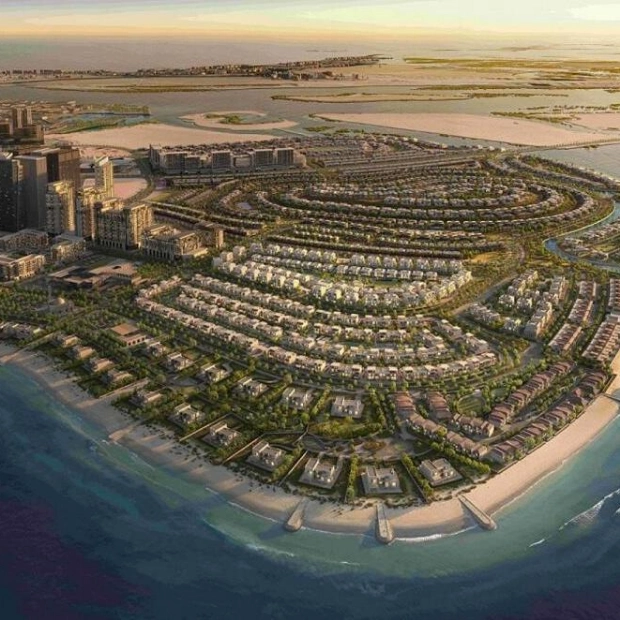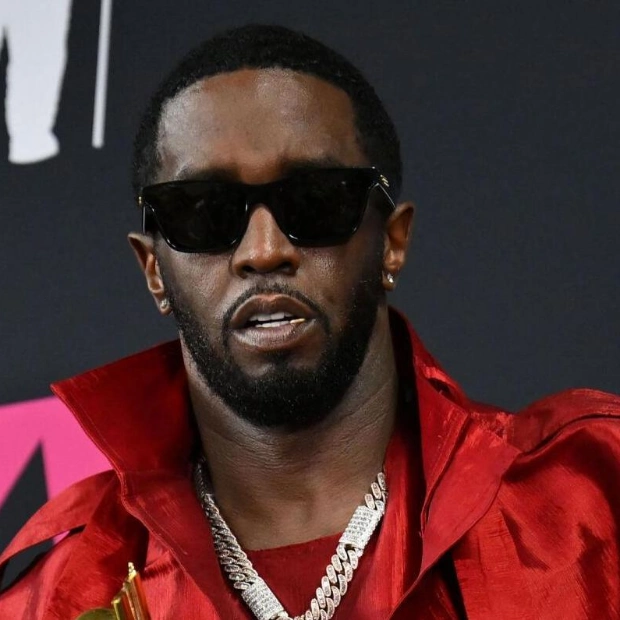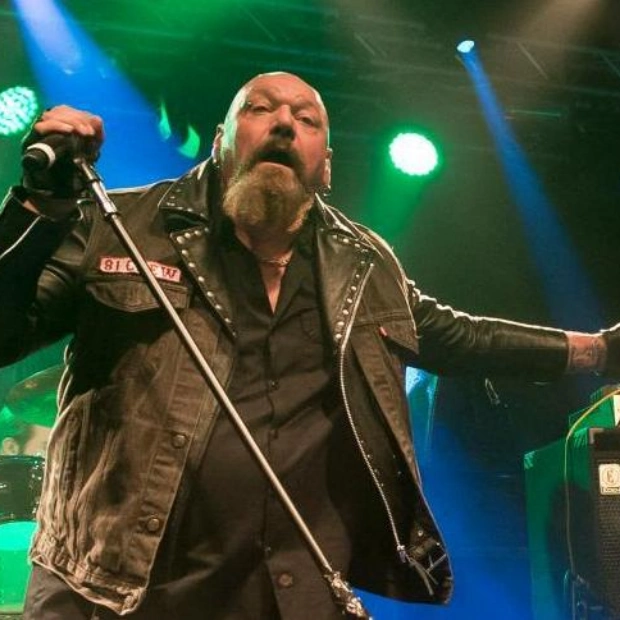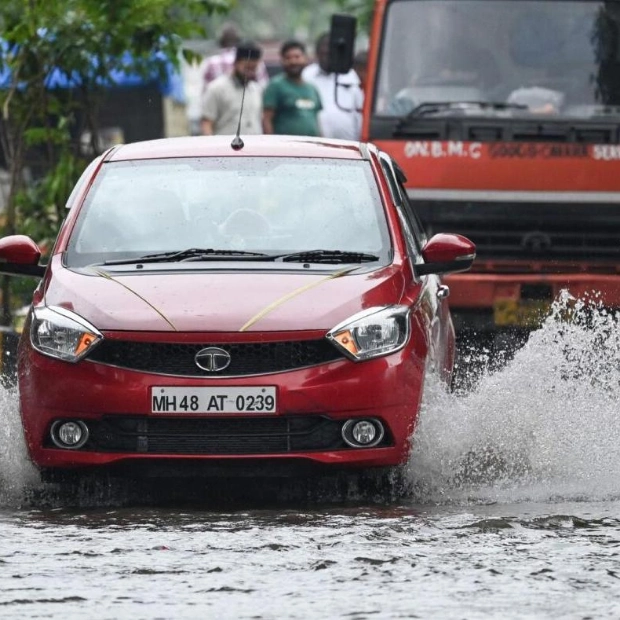Activists participating in the 'Defund Genocide' joint action held a banner during a protest against war and militarization at the United Nations Climate Change Conference in Baku, Azerbaijan, on November 14, 2024.— Reuters
Negotiators were urged on Thursday to provide immediate financial assistance to poorer countries to combat climate change, as experts warned that these states require at least $1 trillion annually by the end of the decade to transition to greener energy sources and protect against extreme weather events. The focus of the COP29 climate talks in Azerbaijan is on securing financial commitments, and the success of the summit will largely depend on whether nations can agree on a new target for annual contributions from richer nations, development lenders, and the private sector to support climate action in developing countries. The previous goal of $100 billion per year, which expired in 2025, was met two years late in 2022, according to the OECD, although much of it was in the form of loans rather than grants, a point raised by recipient countries.
A report from the Independent High-Level Expert Group on Climate Finance set the tone at the start of the day, suggesting that the annual target would need to increase to $1.3 trillion by 2035, or potentially more if countries delay action now. 'Any shortfall in investment before 2030 will place added pressure on the years that follow, creating a steeper and potentially more costly path to climate stability,' the report stated. 'The less the world achieves now, the more we will need to invest later.' Behind the scenes, negotiators are working on draft texts for a potential deal, but early documents published by the United Nations climate body reflect a wide range of differing views, with no clear indication of where the talks will conclude.
Some negotiators expressed frustration with the length of the latest finance text, waiting for a more concise version before formal negotiations could begin. The difficulty of reaching an agreement is compounded by the reluctance of many Western governments, which have been obligated to contribute since the Paris Agreement in 2015, to provide more unless countries like China also agree to participate. The anticipated withdrawal of the United States from future funding deals under incoming President Donald Trump has further complicated matters, increasing the pressure on delegates to explore alternative funding sources.
Among these sources are the world's multilateral development banks, such as the World Bank, which are funded by richer countries and are currently undergoing reforms to increase their lending capacity. A group of 10 of the largest banks has already announced a plan to boost their climate finance by approximately 60% to $120 billion annually by 2030, with at least an additional $65 billion coming from the private sector. Efforts to raise additional funds through taxes on polluting sectors like aviation, fossil fuels, and shipping, or financial transactions, gained momentum as more countries indicated they would consider such measures, though an agreement on this is unlikely at this time.
On Thursday, Zakir Nuriyev, head of the Association of Banks of Azerbaijan, announced that the country's 22 banks are committed to providing nearly $1.2 billion to finance projects that aid Azerbaijan's transition to a low-carbon economy. Despite the progress, the conference has already seen several diplomatic disputes. French climate minister Agnès Pannier-Runacher canceled her trip to COP29 after Azerbaijan's President Ilham Aliyev accused France of 'crimes' in its overseas territories in the Caribbean. 'The voices of these communities are often brutally suppressed by the regimes in their metropolis,' Aliyev stated at the conference. France and Azerbaijan have long been at odds due to Paris' support for Azerbaijan's rival, Armenia. This year, Paris accused Baku of interfering and supporting violent unrest in New Caledonia.
'Regardless of any bilateral disagreements, the COP should be a place where all parties feel at liberty to come and negotiate on climate action,' European Union climate commissioner Wopke Hoekstra commented in a post on X. 'The COP Presidency has a particular responsibility to enable and enhance that,' he added. This followed Aliyev's opening speech on Monday, where he accused the United States and EU of hypocrisy for advocating climate change action while being major consumers and producers of fossil fuels. Meanwhile, Argentina's government has withdrawn its negotiators from the COP29 talks, though the reason for this decision remains unclear.
Argentina's embassy in Baku declined to comment. President Javier Milei of Argentina has previously dismissed global warming as a hoax.
Source link: https://www.khaleejtimes.com
